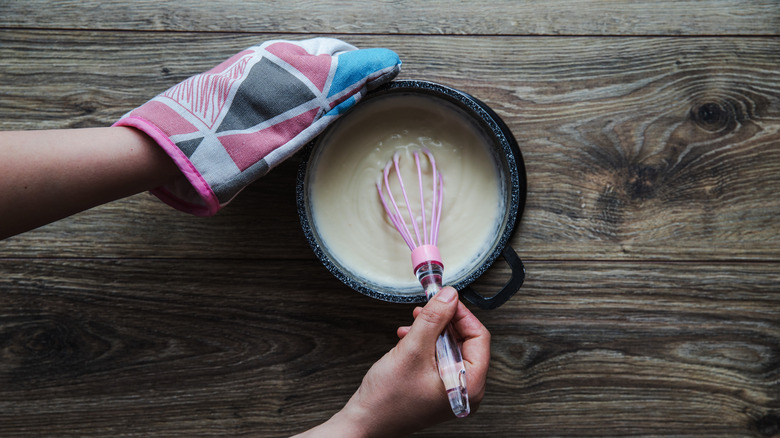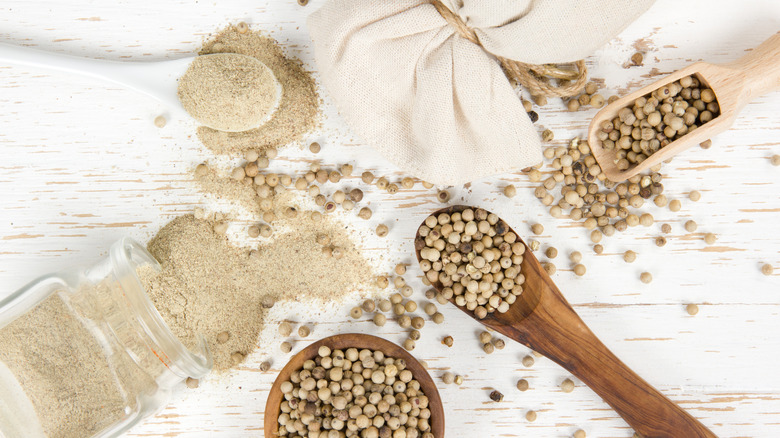Why You May Want To Avoid Using Black Pepper In White Sauces
One of the foundational lessons in cooking is learning how to use basic seasonings to elevate any dish. The simplest of all is the classic pairing of salt and black pepper, and it is a general rule of thumb that both of these seasonings can be added to almost every recipe you cook (barring most desserts, of course). This is why, when making a white sauce for the first time, you may be tempted to reach for the black pepper out of habit, however, this is one of the few cases in which it is not recommended. To make a traditional white sauce (like béchamel or mornay sauce) correctly, it is best to avoid seasonings like black pepper in order to preserve the uniform appearance of the sauce.
In the context of culinary arts, white sauces are a collective family of sauces that originate from French cooking. The rules of French cuisine are incredibly precise and are put in place in order to ensure the best possible flavor, texture, and presentation of a dish. These rules extend to sauces, which is why it is a faux pas to add black pepper to a white sauce; the black pepper stands out against the light background, ruining the desired all-white aesthetic.
How to substitute black pepper in white sauce
While it is aesthetically preferred for you to skip the black pepper when seasoning white sauces, that does not mean that the sauce must remain entirely unseasoned. The solution is actually quite simple: Use white pepper instead. White pepper comes from the same variety of peppercorn as black pepper. The only difference is that white pepper is harvested at full ripeness, then fermented and skinned, whereas black pepper is picked earlier and has the skin left intact.
The flavor of white pepper is slightly earthier and more mild than black pepper, but the overall taste is largely the same, meaning the two can be used relatively interchangeably. As a result, making this swap means you will get the same seasoned taste you desire in your white sauce without disturbing the uniform color. If you want to lean into using white pepper more fully, try pairing it with complementary spices like nutmeg and ginger.

